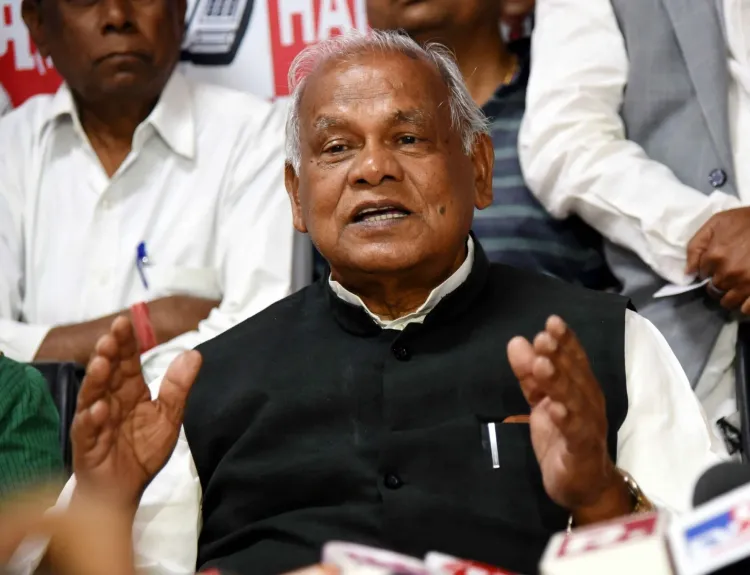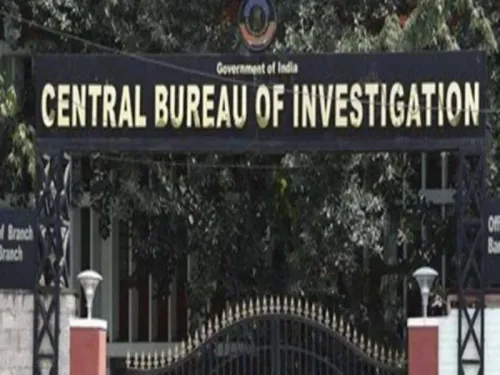Did Jitan Ram Manjhi Just Accuse Rahul Gandhi of Surrendering?

Synopsis
Key Takeaways
- Jitan Ram Manjhi criticizes Congress for its historical political capitulation.
- Rahul Gandhi defends Congress by contrasting leadership during the 1971 war.
- The ongoing political discourse highlights national security as a crucial issue.
- Political polarization is intensifying ahead of the 2025 Bihar elections.
- Both parties are leveraging historical narratives to garner public support.
Patna, June 4 (NationPress) Union MSME Minister and HAM(S) leader Jitan Ram Manjhi criticized the Congress party on Wednesday, asserting that it possesses a "history of surrender".
This statement came in response to Congress leader Rahul Gandhi's remarks on Tuesday, where he claimed that Prime Minister Narendra Modi had "surrendered" after a call from US President Donald Trump during the recent India-Pakistan military tensions.
In a pointed rebuttal on social media platform X, Manjhi enumerated what he described as historical "surrenders" by Congress leaders over the years.
He stated, “Nehru’s capitulation to Indira Gandhi, Indira’s yielding to public discontent during the Emergency, Rajiv Gandhi bowing to Bofors, and Manmohan Singh deferring to Sonia Gandhi. The entire UPA government capitulated when Rahul Gandhi tore the ordinance. Those whose history is steeped in surrender should not cast aspersions on others,” Manjhi articulated.
His comments aimed to depict Congress as historically submissive while justifying the Modi government’s approach to the security crisis.
During a gathering of party members at the launch of the ‘Sangathan Srijan Abhiyan’ in Bhopal, Rahul Gandhi referenced the 1971 war, contrasting leadership styles.
“When the US dispatched its Seventh Fleet in 1971, Indira Gandhi stood her ground. However, following a call from Trump, Modi capitulated - history is a testament to this. This exemplifies the character of the BJP-RSS; they habitually bow down,” Gandhi remarked.
This comment highlighted events from the recent India-Pakistan conflict in May, which followed the April 22 Pahalgam terror attack that led to the initiation of Operation Sindoor on May 7.
This operation aimed at nine terrorist installations in Pakistan and Pakistan-occupied Kashmir (PoK). Just two days later, Pakistan called for a ceasefire, which was first publicly announced by Donald Trump via social media.
The ongoing exchange reflects escalating political polarization as the 2025 Bihar elections approach, with national security becoming a pivotal issue.
Despite the Central government asserting that a ceasefire was reached after a request from Pakistan's DGMO, opposition parties allege diplomatic concessions under external pressures.
Political analysts observe that Rahul Gandhi’s continual references to 1971 aim to draw comparisons between Congress and the BJP, even as the global geopolitical landscape has significantly evolved.









